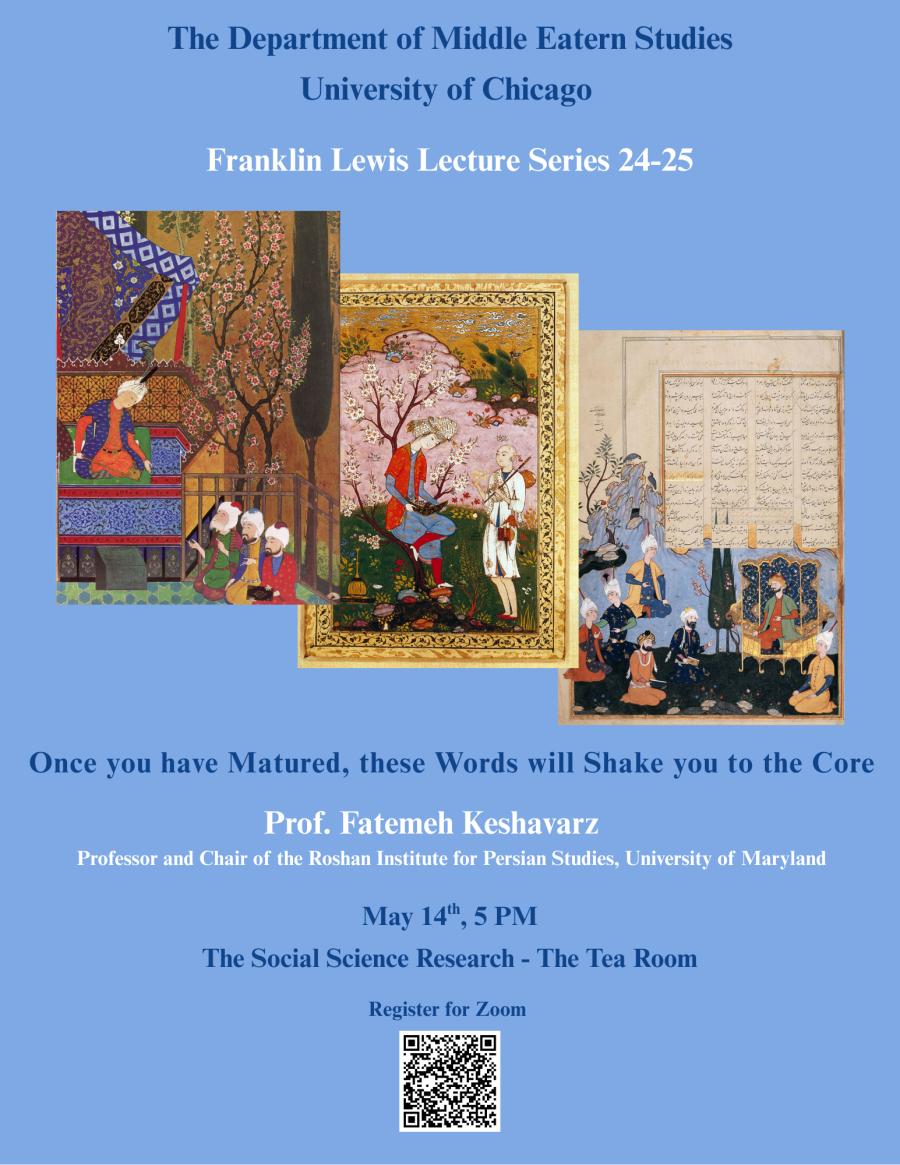Once you have Matured, these Words will Shake you to the Core
This presentation explores a selection of Jalal al-Din Rumi’s (1207-1273) invocations of human speech in his orally delivered discourses, the Fihe ma fih. These references, allusive or extensive, display attention to the varieties, capacities, impacts, and ultimately significance of speech. A sacred tool in God hand, and also available to seekers of spiritual attainment. Born on the intersection of speculative thought (as in the Masnavi), and poetic fervor and freedom (as in the Divan), the Discourses are often spontaneous, interactive, at times accidental, and always instructive. In all these variations, the orality of the text sharpens the edge of expression. Rumi, the poet, remains aware of the cerebral, as well as affective, complexity of speaking.
Indeed, his serious and sustained attention to the multifaceted act of speaking, in the overall trajectory of human struggle and growth, stands out in contrast to the approach of the standard books of Prosody and Rhetoric to this matter. The latter focuses noticeably on fine points of eloquence, rhetorical impact, and poetic artistry, foregrounding the master poets’ power of mesmerizing audiences with their سحر حلال licit magic. Yet the place of speech in the bigger picture of human existence is hardly a point of interest. Rumi’s perspective is different to say the least. For him, while speech is primarily a divine gift, and the fountainhead of creation کن فیکون, it is also a tool offered to human beings. The speech, the speaker, and most of all the listener, each have a vital part in speaking to bring the ongoing creation خلق مجدد into continual fruition.
Biography
Fatemeh Keshavarz holds degrees from Shiraz University, and a Ph.D. in Near Eastern Studies from the University of London. She has published 6 single author monographs on Persian literature including Recite in the Name of the Red Rose: Poetic Sacred Making in 20th Century Iran (South Carolina U. Press, 2006) and Lyrics of Life: Sa’di on Love, Cosmopolitanism, and Care of the Self (Edinburgh U. Press, 2015). Her latest book Mystical Landscapes in Medieval Persian Literature was co-edited with A.T. Karamustafa (Edinburgh U. Press, 2025). She holds the Roshan Chair and Directs Roshan Institute for Persian Studies at the University of Maryland. In 2007, Keshavarz was invited to speak at the UN General Assembly on the significance of cultural education for world peace. The NPR show “Speaking of Faith” featuring her in the hour-long episode “The Ecstatic Faith of Rumi,” received the Peabody Award in 2008. She is a published poet in Persian and English and has received several Peace & Justice Awards. Her podcast Radio Rumi (2018-2023), which has 67 episodes, and reached the top two and half percent ranking among Apple Podcasts.

